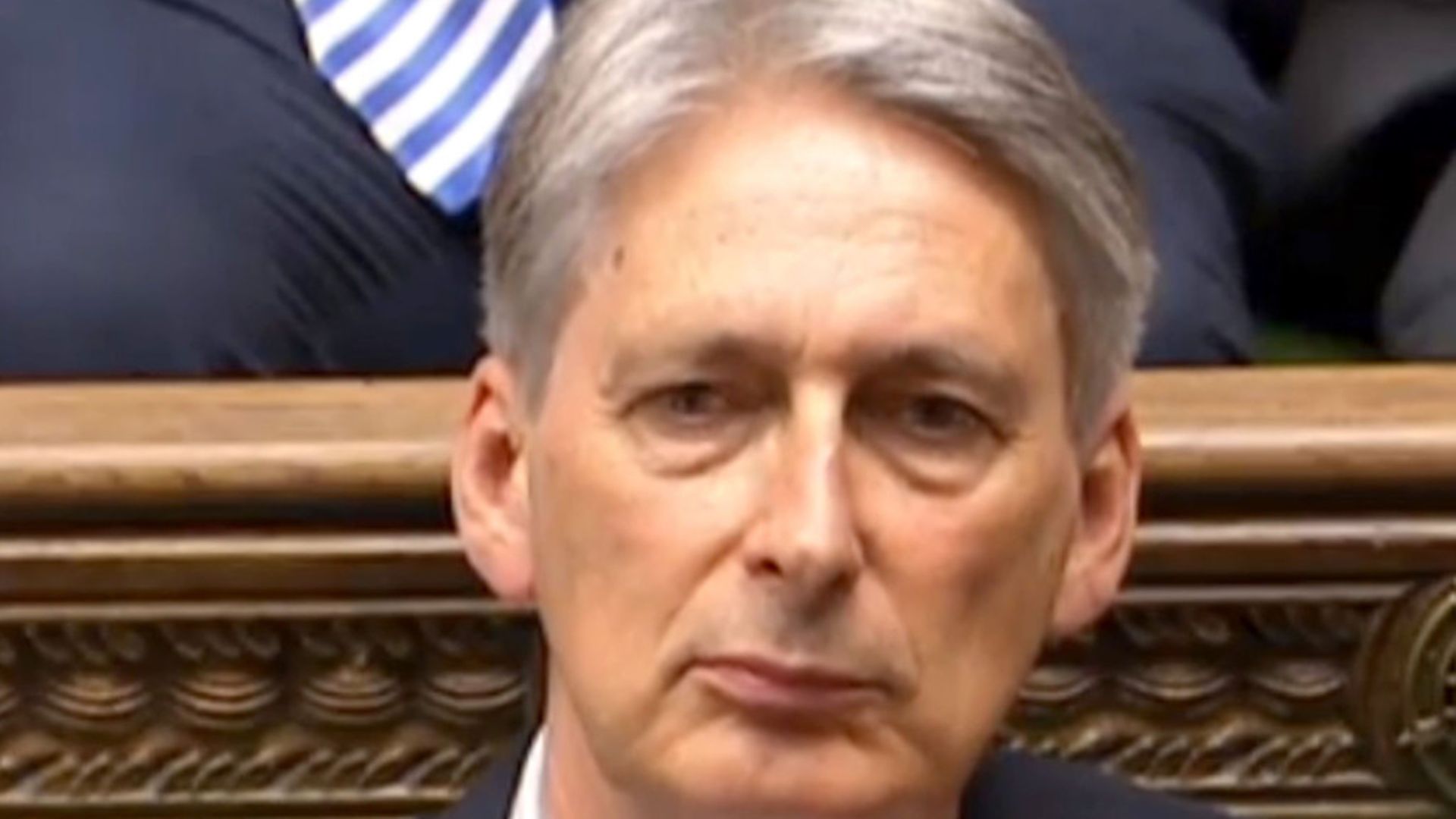
Chancellor Philip Hammond has launched a ferocious counter-attack on cabinet rivals who have been briefing against him claiming Brexiteers are behind the plots.
He accused them of trying to undermine his attempts to secure a Brexit deal which protected jobs and the economy.
Hammond has been hit by a series of press reports claiming the he told the Cabinet that public sector workers were ‘overpaid’ and that driving a train was now so easy that ‘even’ a woman could do it.
Appearing on BBC1’s The Andrew Marr Show, he blamed colleagues opposed to the agenda he had been setting out for extended transitional arrangements when Britain leaves the EU in 2019 so business was not faced with a ‘cliff edge’ break.
‘If you want may opinion, some of the noise is generated by people who are not happy with the agenda which I, over the last few weeks, have tried to advance of ensuring that we achieve a Brexit which is focused on protecting our economy, protecting our jobs, and making sure that we have continued rising living standards in the future,’ he said.
Hammond said he did not know who had been briefing against him but an ongoing feud with Foreign Secretary Boris Johnson makes him the prime suspect.
‘They shouldn’t have done it frankly because cabinet meetings are supposed to be a private space in which we have a serious discussion,’ Hammond said.
‘I think on many fronts it would be helpful if my colleagues – all of us – focused on the job in hand. This Government is facing a ticking clock over the Brexit negotiations.’
Asked if there was now a fight under way within the cabinet to succeed Theresa May as Conservative leader, he said: ‘I certainly hope not. If there is I am no part of it.’
Hammond refused to be drawn on a report by the Sunday Times that he said public sector workers were ‘overpaid’ at the weekly meeting of the cabinet on Tuesday – although a Treasury source insisted that he did not use the word.
He acknowledged, however, he had made the point during the discussion that public sector workers enjoyed a 10% pension ‘premium’ over their private sector counterparts.
‘Public sector pay raced ahead of private sector pay after the crash in 2008-09. Taking public sector pay before pensions contributions – that gap has now closed,’ he said.
‘But when you take into account the very generous contributions public sector employers have to pay in for their workers’ pensions – their very generous pensions – they are still about 10% ahead.’
His comments came at a sensitive time for the Government which is under pressure to end the 1% pay cap for public sector workers after seven years of austerity.
The Chancellor, who is widely thought to have led the opposition in Government to any relaxation, did hint that it was an issue they were prepared to look at.
‘We do keep this under constant review and I think the fact that is apparently now well known the cabinet has been discussing this issue sends a clear signal that we do understand the concern both of public sector workers and of the wider public,’ he said.








